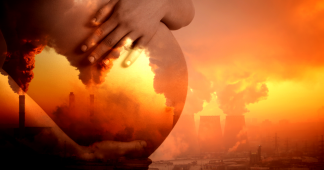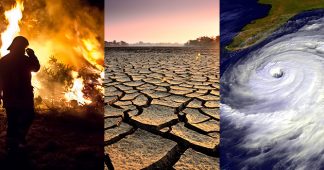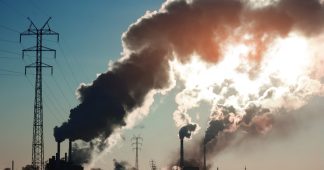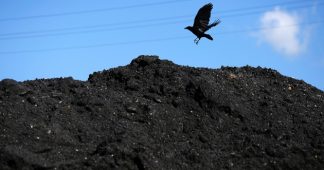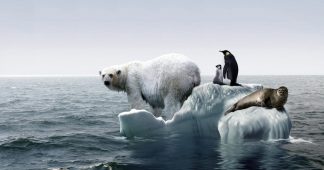By Akshat Rathi
July 03, 2015
In 1955, partly out of urgency and partly out of guilt, a group of 52 Nobel Laureates signed a declaration on Mainau Island in Germany calling for an end to the use of nuclear weapons. The work of some of these prizewinners—including that of Otto Hahn, who discovered nuclear fission—was used to build nuclear weapons. They were horrified their work was turned into technology that could kill billions.
Now, 60 years on, again out of a mix of urgency and guilt, a group of 36 Nobel prizewinners have signed a new Mainau Declaration (pdf) calling for urgent action on climate change. The document is open for other Nobel Laureates to join.
The discoveries of these signatories have mostly improved the quality of life of people around the world, but they now stand horrified at the prospect of what unchecked use of natural resources could do to the future.
The 2015 Mainau Declaration on Climate Change and signatures of Nobel Laureates. (Christian Flemming/Lindau Nobel Laureate Meetings)
In our fight against climate change, another declaration—even if it’s signed by some of the most eminent living scientists—probably won’t do much. But the declaration comes at a time when world over preparations are being made for a climate-change summit to be held in Paris in November 2015. Although previous global summits have resulted in more talk and less action, there is hope that the Paris talks would be different.
One of the leaders of the 1955 Mainau Declaration was Linus Pauling, whose relentless work against nuclear weapons won him the 1962 Nobel Peace prize—putting him in the rare category of a single individual winning two Nobel prizes. Who knows? Perhaps the same could happen to one of these Nobel Laureates.
Here is the 2015 declaration in full:
We undersigned scientists, who have been awarded Nobel Prizes, have come to the shores of Lake Constance in southern Germany, to share insights with promising young researchers, who like us come from around the world. Nearly 60 years ago, here on Mainau, a similar gathering of Nobel Laureates in science issued a declaration of the dangers inherent in the newly found technology of nuclear weapons—a technology derived from advances in basic science. So far we have avoided nuclear war though the threat remains. We believe that our world today faces another threat of comparable magnitude.
Successive generations of scientists have helped create a more and more prosperous world. This prosperity has come at the cost of a rapid rise in the consumption of the world’s resources. If left unchecked, our ever-increasing demand for food, water, and energy will eventually overwhelm the Earth’s ability to satisfy humanity’s needs, and will lead to wholesale human tragedy. Already, scientists who study Earth’s climate are observing the impact of human activity.
In response to the possibility of human-induced climate change, the United Nations established the Intergovernmental Panel on Climate Change (IPCC) to provide the world’s leaders a summary of the current state of relevant scientific knowledge. While by no means perfect, we believe that the efforts that have led to the current IPCC Fifth Assessment Report represent the best source of information regarding the present state of knowledge on climate change. We say this not as experts in the field of climate change, but rather as a diverse group of scientists who have a deep respect for and understanding of the integrity of the scientific process.
Although there remains uncertainty as to the precise extent of climate change, the conclusions of the scientific community contained in the latest IPCC report are alarming, especially in the context of the identified risks of maintaining human prosperity in the face of greater than a 2°C rise in average global temperature. The report concludes that anthropogenic emissions of greenhouse gases are the likely cause of the current global warming of the Earth. Predictions from the range of climate models indicate that this warming will very likely increase the Earth’s temperature over the coming century by more than 2°C above its pre-industrial level unless dramatic reductions are made in anthropogenic emissions of greenhouse gases over the coming decades.
Based on the IPCC assessment, the world must make rapid progress towards lowering current and future greenhouse gas emissions to minimize the substantial risks of climate change. We believe that the nations of the world must take the opportunity at the United Nations Climate Change Conference in Paris in December 2015 to take decisive action to limit future global emissions. This endeavor will require the cooperation of all nations, whether developed or developing, and must be sustained into the future in accord with updated scientific assessment.

